BLOG
Nvidia ushers in new era of AI with Grace Blackwell chips at COMPUTEX 2025
At COMPUTEX 2025 in Taiwan, Nvidia CEO Jensen Huang unveiled what may be the most powerful AI processor architecture to date, the Grace Blackwell NVL72 chip.
The Grace Blackwell chip fuses Nvidia’s strengths in GPU acceleration with high-performance CPU processing, in a tightly fused package. It is designed to accommodate the most demanding works as it includes a trillion-parameter large language model, real-time inference engines, and next-generation scientific simulations.
A next-generation platform built around the Grace Blackwell architecture is the GB300 AI system, announced at COMPUTEX 2025. Set to debut in Q3 2025, GB300 is expected to have the potential to be the new backbone for hyperscale AI.
It uses cutting-edge CPU and GPU technology to supercharge the development and deployment of large-scale AI models.
Another major announcement was the extension of NVLink Fusion, Nvidia’s high-speed interconnect technology, to partner with outside companies.
As the keynote came to a close, Huang introduced Blackwell Ultra, a future iteration of the chip coming in 2026, followed by Rubin and Feynman architectures by 2028.
Jensen Huang’s COMPUTEX 2025 keynote was more than just a product launch. It can be seen as a declaration of Nvidia’s important role in the upcoming era of AI infrastructure.
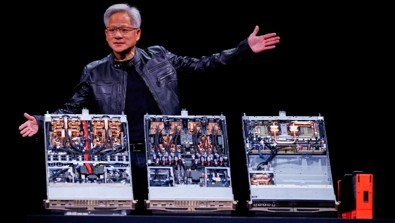
Vertiv and Chemours score DataVolt deals, following $20bn Supermicro contract
Saudi Arabian data center company DataVolt has signed supplier contracts with Vertiv and Chemours.
On LinkedIn, Vertiv's EMEA president, Karsten Winther, said that the company had signed a 'Technical Cooperation Agreement' with DataVolt "to advance next-generation data center innovation in Saudi Arabia and beyond.
Vertiv develops both power and cooling solutions for the data center sector.
Liquid cooling fluid company Chemours, meanwhile, said that it had entered into a strategic agreement with DataVolt across two-phase direct-to-chip, two-phase immersion cooling, and other solutions. Among the fluids to be used is Chemours' new Opteon dielectric line.
Riyadh-based DataVolt was founded in 2023 and is a wholly owned subsidiary of Vision Invest, a Saudi Arabian development and investment holding company focused on critical infrastructure.
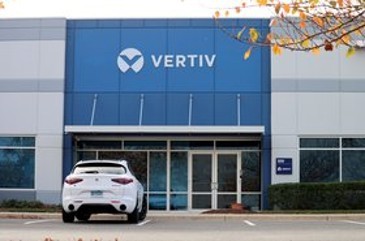
Shell cooling fluids certified by Intel for use in data centres worldwide – an industry first
Shell Lubricants’ (“Shell”) immersion cooling fluids have become the first to receive official certification from a major chip manufacturer, allowing its innovative products to be used with confidence in data centres worldwide.
Jason Wong, Global Executive Vice President, Shell Lubricants, said: “Upgrading existing air-cooling methods with immersion fluids can reduce data centre energy use by up to 48%, as well as help reduce capital and operating expenditure by up to 33%.”
Immersion cooling involves servers and networking equipment being placed in electrically non-conductive fluid. The specialised liquid absorbs and dissipates heat from IT equipment more than one thousand times more efficiently than air-cooling.
With no need for coolers, chillers, fans or evaporative cooling systems, immersion cooling fluids can cut the floor space needed for a data centre by up to 80%.
Conventional cooling systems typically account for around 30-40%4 of a data centre’s energy demand. Shell’s immersion cooling fluids can be retrofitted to existing data centres, as well as allowing new data centres to use space more efficiently.
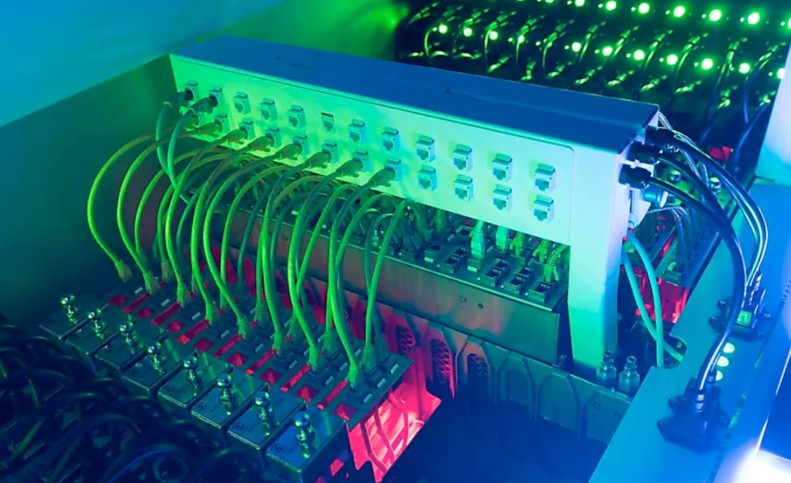
Equinix launches first Indonesian data center in Jakarta
Equinix has launched a data center in Jakarta, Indonesia. The company this week inaugurated its first International Business Exchange (IBX) data center in Jakarta via a joint venture with PT Astra International Tbk.
Located in Jakarta’s Central Business District, JK1 is an eight-story facility offering 550 cabinets in the first phase. At full build-out, the facility will offer a total capacity of 1,600 cabinets and 5,300 sqm (57,050 sq ft) of colocation space.
The site will be able to support liquid cooling and will operate with an average Power Usage Effectiveness (PUE) of 1.41 at full load. The site’s power needs will be covered via renewable energy credits (RECs).
Astra International, Tbk. is controlled by Jardine Cycle & Carriage, the investment holding company of Jardines in Southeast Asia. It has holdings across industry sectors including automotive, financial services, heavy equipment, mining, construction & energy, agribusiness, infrastructure and logistics, information technology, and property.
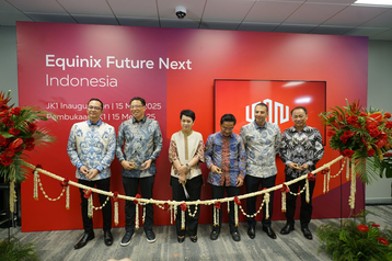
Colovore secures $925m debt facility from Blackstone for liquid-cooled data center build-out
Liquid-cooled data center firm Colovore has secured almost $1 billion in new debt funding to fuel its ongoing roll-out across the US.
The company this week announced the closing of a $925 million debt facility provided by Blackstone funds.
The new financing will fast-track Colovore’s national expansion of its liquid-cooled data centers across the US. Initial expansions are planned for Reno, Nevada; Chicago, Illinois; and Austin, Texas.
Launched in 2013, Colovore carved out an early niche for liquid-cooled racks capable of up to 35kW. The company opened its original single-story, 24,000 sq ft (2,230 sqm) facility in San Jose in 2014, with the last 2MW expansion announced in February 2022.
Its second San Jose site, adjacent to the first, launched earlier this year; the colocation provider's sites can now support densities up to 250kW per cabinet through a combination of rear door and direct-to-chip liquid cooling.
Brian Higgins, founder and managing partner of King Street, added: “With more than a decade of experience in liquid cooling, Colovore is uniquely positioned to provide infrastructure to meet the soaring demand for high-density, AI-optimized data centers. We look forward to further leveraging King Street’s real estate and credit capabilities to support their rapid expansion.”
Cerebras, Lambda Labs, and Cirrascale, amongst others, are known customers of Colovore.
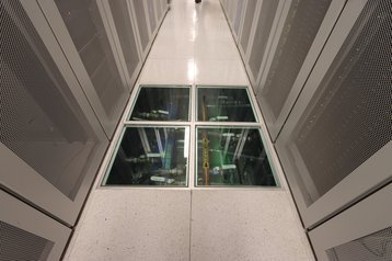
Start Campus and Schneider Electric partner to deliver 26MW data center in Sines, Portugal
Schneider Electric has helped deliver the first stage of the Start Campus data center development in Portugal.
The power technology firm has partnered with Start Campus to open the first data center on the site, the 26MW SIN01 facility, which came online in December.
Located on repurposed industrial land in Sines, Portugal, Start Campus could eventually become Europe’s biggest data center campus, with 1.2GW of power secured by the developer.
The campus has utilized a range of Schneider Electric products, including the company’s EcoStruxure for Data Centers portfolio and sustainability services. The firms said this will help “set new benchmarks for resilient and sustainable workloads for AI, cloud and GPU-accelerated computing clusters.”
SIN01 is part of Start Campus’ planned six-building campus. In August last year, it secured power to bring the total potential IT capacity of the campus to 1.2GW.
The campus will use Nautilus' cooling technology, which can leverage surrounding seawater for a more environmentally friendly cooling solution.
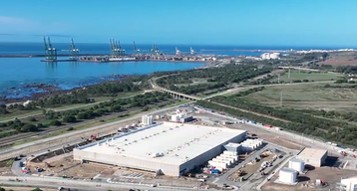
Colt DCS breaks ground on second Paris data center
Colt DCS has broken ground on its second data center in France.
The facility, Colt Paris 2, is the first of three data centers planned for a 12.5-acre site in Villebon-sur-Yvette, southwest of Paris.
It is part of a €2.3 billion ($2.58bn) investment in French infrastructure, which will see five data centers constructed by 2031, bringing Colt’s IT capacity in France to 170MW.
Colt Paris 2 is being designed to meet the needs of the company’s enterprise and hyperscale customers. A €400 million investment, it will offer 40MW total capacity, with more than 100kW per cabinet.
Powered by 100 percent renewable energy, the data center will take a hybrid approach to cooling, combining traditional air cooling with liquid-to-chip technology.
According to Colt, zero water waste will result from the cooling process, and the facility has been designed to recover waste heat for use by the local community.
Spun off from Colt Technology Services in 2015, Colt DCS’s data center portfolio includes 13 operational facilities, with an additional nine in development, across 11 cities in the UK, Europe, and the APAC region.
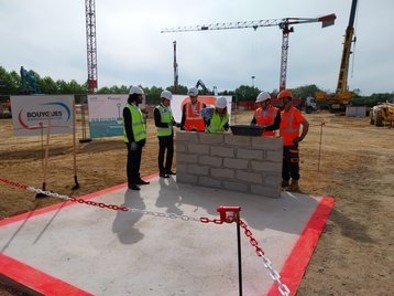
AtNorth secures Swedish AI cloud provider as customer in Stockholm data center
Nordic data center firm atNorth has secured a new Swedish AI cloud player as a customer.
The company this week announced it will host infrastructure that will support the development of a National AI Cloud in partnership with 6G AI Sweden.
6G AI Sweden has reportedly made an agreement to acquire an undisclosed number of Nvidia's H200 and Blackwell GB200 GPUs. These AI chips will be hosted at atNorth’s SWE01 data center in Stockholm.
The National AI Cloud will reportedly “ensure data sovereignty under Swedish jurisdiction and will be fully compliant with GDPR,” according to the companies.
6G AI Sweden described itself as a “leading Swedish AI cloud provider,” dedicated to offering sovereign AI cloud solutions in Sweden. On its website, the company said its fleet includes 2,224 Nvidia GPUs.
Zaman leads Kmanjaro Holdings, which also owns fintech firm 6G Digital Sweden and has been involved with telecom ventures across Asia. 6G AI Sweden announced a SEK 2.1 billion ($216m) purchase agreement with IT distributor MBUZZ last year to procure Nvidia hardware for its cloud offering.
Located in Stockholm suburb Kista, atNorth's SWE01 site offers 12MW across 6,400 sqm. Launched in 2022, the site uses direct liquid cooling and can support up to 100kW a rack.
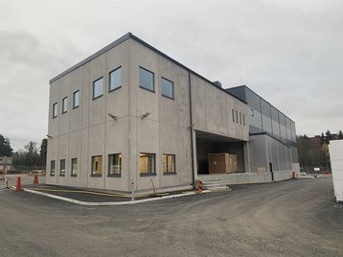
Swedish real estate group Balder invests in Scandinavian Data Centers
Swedish firm Scandinavian Data Centers (SDC) has secured new investment to fund the development of its underground data center.
The company this week announced real estate group Fastighets AB Balder as a new long-term investor. Terms of the deal were not shared.
The investment will enable the construction of SDC's first data center, located in Eskilstuna.
The data center is located in a 7,000 sqm (75,347 sq ft) underground facility launched in 1939 that was used as an aircraft engine factory and testing facility during World War II. SDC reportedly acquired the site several years ago, according to local press.
The planned expansion will “significantly increase” capacity – up to 10MW initially – and will include both traditional air-cooled and liquid-cooled data halls for higher IT loads. The company is reportedly targeting a 2026 completion date and an investment of two billion kroner ($186.8m).
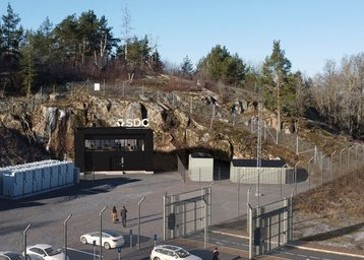
Samsung to pay €1.5bn for HVAC specialist FläktGroup
Samsung is set to pay €1.5 billion ($1.68bn) to acquire air cooling systems vendor FläktGroup.
Germany-based FläktGroup provides HVAC cooling technology and CDUs to data centers and other large industrial sites.
It is currently owned by investment funds advised by Triton, and the deal is expected to close before the end of the year.
FläktGroup was formed in October 2016 through the merger of DencoHappel, previously part of the Triton-owned heat exchanger speciliast Galapagos group and cooling firm FläktWoods.
Since the merger, FläktGroup has broadened its cooling offering and expanded into markets such as data centers, gigafactories, and pharmaceutical manufacturing.
Clients listed on FläktGroup’s website include a string of data centers across the UK, as well as Microsoft’s headquarters in Dublin.
TM Roh, acting head of the device experience division at Samsung Electronics, said: "Through the acquisition of FläktGroup, a central HVAC specialist, Samsung Electronics has laid the foundation to become a leader in the global HVAC business, offering a full range of solutions to our customers.
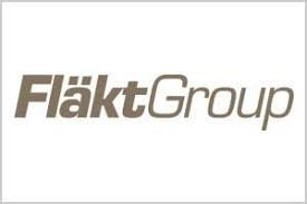
GlobalWafers opens Texas wafer fab in Sherman, plans $4bn additional US investment
Taiwanese chipmaker GlobalWafers has announced plans to invest an additional $4 billion in the US.
The comments were made by Doris Hsu, GlobalWafers chairperson and CEO, at the opening of the company’s new $3.5bn fab in Sherman, Texas.
GlobalWafers is set to receive $406 million in direct funding from the US government's CHIPS act to support the construction of two fabs, the newly opened facility in Sherman, Texas, and a second in St. Peters, Missouri, both of which will produce 300-mm wafers and silicon-on-insulator wafers.
The company is also planning to convert its existing silicon epitaxy wafer manufacturing facility in Sherman into a silicon carbide (SiC) epitaxy wafer manufacturing site, producing 150mm and 200mm SiC epitaxy wafers.
Following the opening of the Sherman site, the company announced plans to add two additional phases to the fab to help boost production capacity. Phase one has already been completed and is ready for production, while phase two is still in the planning stage.
Following that announcement, in March, TSMC announced that it would invest $100 billion into the US - with it unclear how much of the previous figure is included in the number - after President Trump criticized Taiwan for 'stealing' America's chip business, said that the CHIPS Act was a failure, and threatened tariffs.
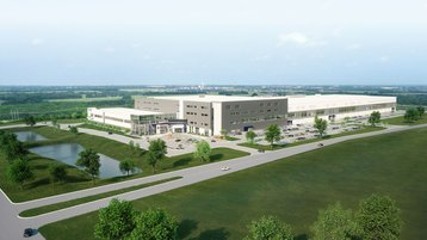
LatAm investment firm Patria launches new data center company to target hyperscalers
The investment company that founded Latin American data center firm OData has launched a new operator.
Patria Investments, through one of its infrastructure funds, has announced the launch of Omnia, a new data center platform.
Designed to serve hyperscalers, Omnia will develop, build, and operate large-scale, purpose-built data centers across Latin America. Led by CEO Rodrigo Abreu, Patria said Omnia will focus on 100MW+ developments able to host high-density workloads via liquid cooling. The company said the sites will be powered by renewable energy.
Felipe Pinto, managing partner of Patria’s Infrastructure Investments in Latin America, added: “Global demand for data centers is expected to more than double by 2030, driven by the widespread adoption of AI and the continued migration to cloud. In this context, Latin America’s capacity is forecast to more than triple over the coming years, requiring up to $50 billion in new capital investment. With the support of Patria’s track record and expertise in Energy, Data Centers and Real Estate, we believe Omnia has great potential ahead of it”.

HPE to build South Korean supercomputer
HPE has been selected to build a South Korean supercomputer optimized for AI. KISTI-6, named after the Korea Institute of Science and Technology Information (KISTI), is expected to reach a theoretical peak performance of 600 petaflops.
Set to be the most powerful cluster in South Korea, HPE will provide its Cray Supercomputing EX400 system, along with its Slingshot Interconnect 400 for networking and its Cray Supercomputing Storage Systems E2000. The supercomputer will have two partitions split between Nvidia’s GH200 Superchips and AMD’s 5th generation Epyc CPUs.
A direct liquid cooling system will also be used.
KISTI is a government-funded research institute. It was formed in 2001 after a merger between the Korea Research & Development Information Center and the Korea Institute of Industry and Technology Information.
KISTI’s president, Sik Lee, said: “Our goal is to work with HPE, AMD, and Nvidia to cement Korea’s position as a leading country for supercomputing and sovereign AI innovation. We want to nurture experts in data utilization, high-performance computing, and AI technologies to help bolster our scientific and technological competitiveness.”

Leave A Reply
LOGO
This stunning beach house property is a true oasis, nestled in a serene coastal community with direct access to the beach.
Opening Hours
Monday - Friday : 9AM to 5PM
Sunday: Closed
Closed during holidays
Contact
+18888888888
hezuo@eyingbao.com123 West Street, Melbourne Victoria 3000 Australia



